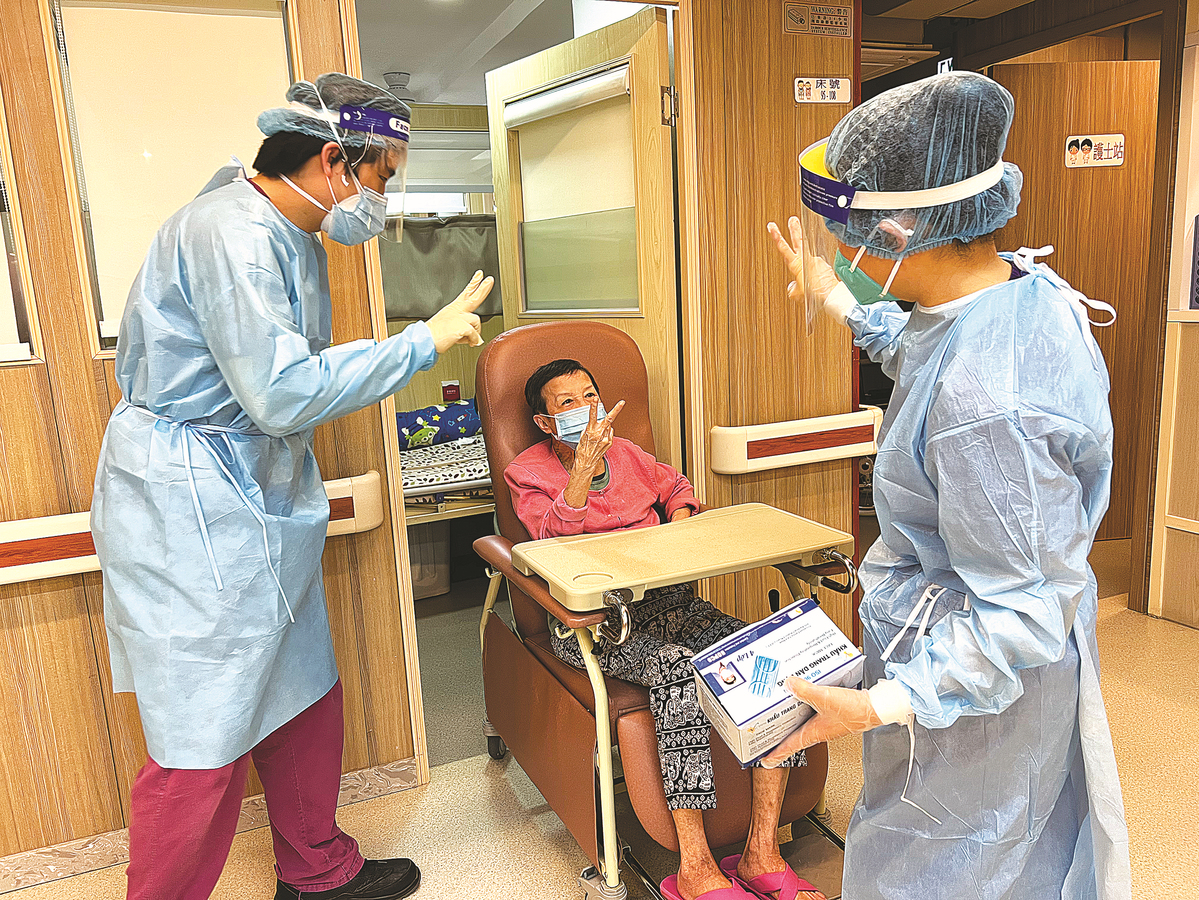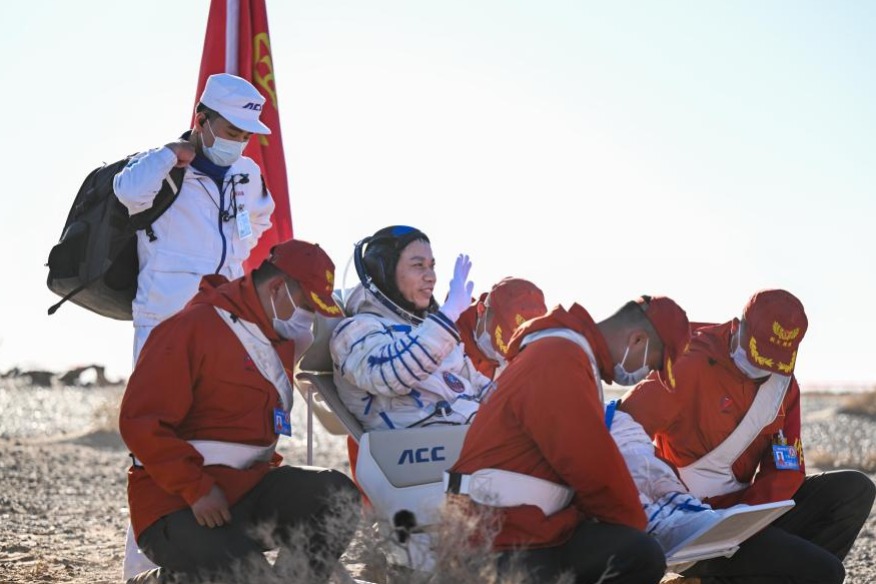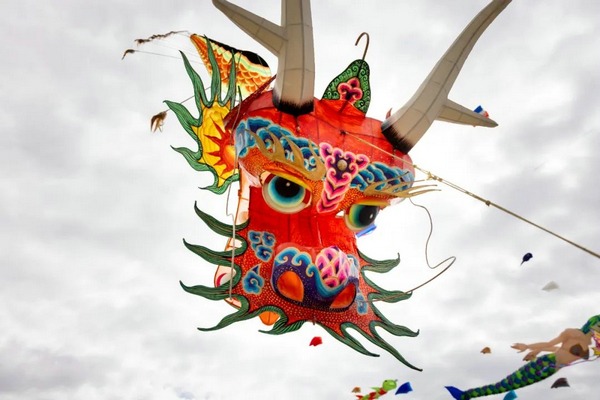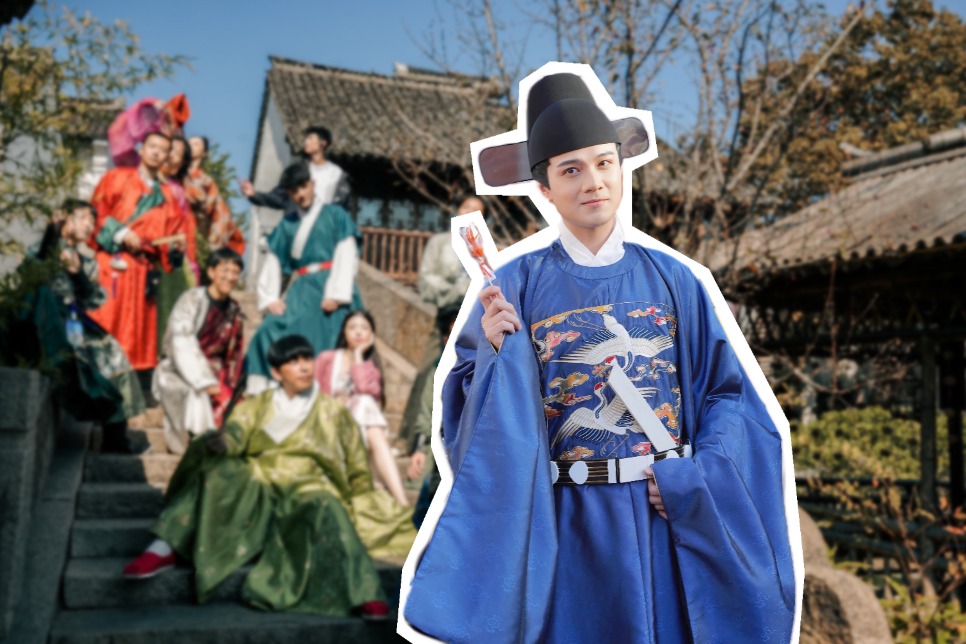A Great Wall of defense for seniors
By Shadow Li | China Daily | Updated: 2022-05-05 08:40

Editor's Note: During the fifth wave of the COVID-19 outbreak in Hong Kong, those bearing the brunt are the most vulnerable-older adults, many of whom have chronic diseases and live in residential care homes. Many staff members have moved away from their homes to help keep the seniors safe, and many have contracted the disease, but recovered. China Daily spoke with some of those most affected to learn about their struggles and the battle against COVID-19 in the city's nursing homes.
My decision to stay in the workplace paid dividends
Li Hongmei's biography
・Age: 46
・ Working experience: 10 years
・ Post: Manager of patient care workers at Dragon's Home, a private nursing home at North Point
・ Job description: Works from 7 am to 7 pm. Mainly responsible for training new caregivers, managing caregivers, communicating with the family members of residents, helping feed residents, assisting them in keeping clean and rolling them over to keep their muscles strong.
・ COVID-19 history: Confirmed infected on Feb 26. Declared free of the virus on March 2
When an elderly female resident at the nursing home where I work developed a fever on Feb 16, panic quickly took hold. Fear was rising as the city became embroiled in the worst wave of the COVID-19 outbreak since early February.
The next day, the hospital confirmed that she had tested positive for the disease. Some staff members began to get cold feet. Three called in sick, while five others quit in the days that followed.
Three days before that first confirmed infection in my workplace, I decided to move into the nursing home. I had realized that the outbreak was heading for an unfavorable turn, with cases beginning to surge in the community day after day. I couldn't afford to be the person who might bring the virus to the elderly residents.
When I went home to pick up some belongings, my husband was concerned. He tried to dissuade me, and asked me to take sick leave instead. I told him that it was not the time to leave the senior residents because the nursing home was in dire need of helping hands and morale was hitting an all-time low.
In the days that followed, I slept on one of the couches in the lobby. I started work at 7 am and finished at 7 pm.
Adding to the woes, one of our staff members tested positive on Feb 24. The workforce was stretched to the limit, but two days later, I was forced to take a step back from work after contracting the virus. I had a low-grade fever, fatigue and a sore throat-all symptoms of possible COVID-19 infection. On Feb 26, a rapid antigen test confirmed the worst. I couldn't go home or stay at the nursing home. Luckily, I was allowed to self-quarantine in a company dorm. Five days later, I tested negative, but the virus left me with dysgeusia (a condition that affected my sense of taste), fatigue and a hoarse voice. I took traditional Chinese medicine, including Lianhua Qingwen capsules, distributed by my company, to treat my symptoms. I regained some of my sense of taste after a few days of treatment.
The moment I tested negative, I applied to return to work immediately to help ease the burden on my colleagues, but I continued to live in the company's dorm.
The epidemic made my work even harder. The situation was compounded by the freezing weather in February. It was especially evident in residents who had contracted COVID-19.
The disease meant the seniors were unable to sit without fainting, so they had to lie in bed almost all day. I had to wipe their bodies clean, feed them milk and help them roll over to prevent bedsores or muscle wastage.
The hardest part was that many of the infected seniors had lost their appetites, making it hard for them to take in food. Sometimes, they wouldn't even open their mouths, so we fed them milk or liquid foods for breakfast and lunch.
For afternoon tea, some family members would bring porridge and ask us to feed it to the residents. Before the epidemic, it was not a big deal as most of them could have their meals on their own.
Now, the feeding process stretched to three hours or longer. I had to stop after a few spoonfuls of porridge, before the infected person got angry, and return a few minutes later to try again.
My heavy protective gear posed a big stumbling block to doing my job. I had to wear a protective gown, a surgical mask under an N95 face mask and a face shield.
Initially, about 25 caregivers were responsible for about 100 residents, but the number of seniors fell as some were taken home to avoid the virus, while some of the others became infected and were sent to the hospital.
At the height, all the residents-most of them with chronic diseases-contracted the virus. Six of them died. Currently, we have 77 elderly residents, and they have all recovered.
All but seven or eight staff members avoided becoming infected. Later, we received many thank-you calls from family members of residents. For me, nothing is more rewarding than seeing the seniors regain their health and spirit.
In hindsight, my decision to stay at the nursing home was a good one.
Li Hongmei spoke with Shadow Li.
























